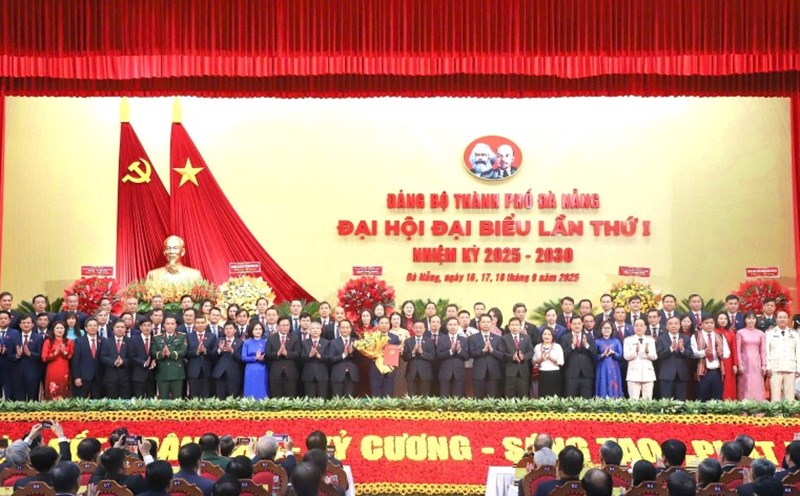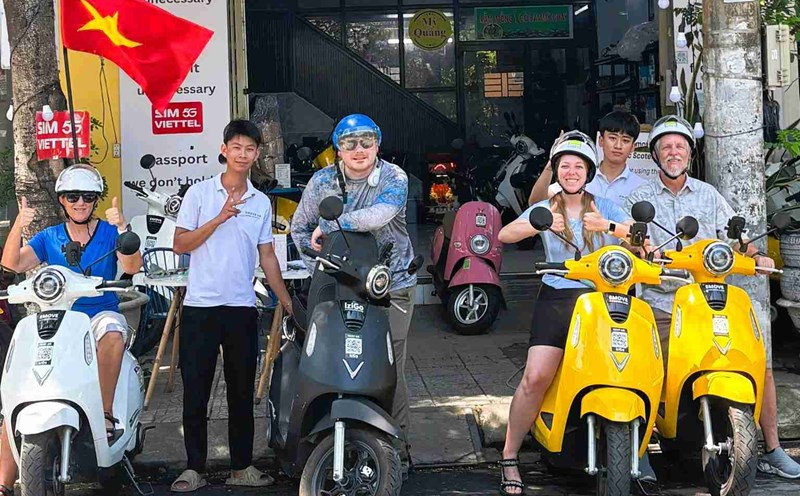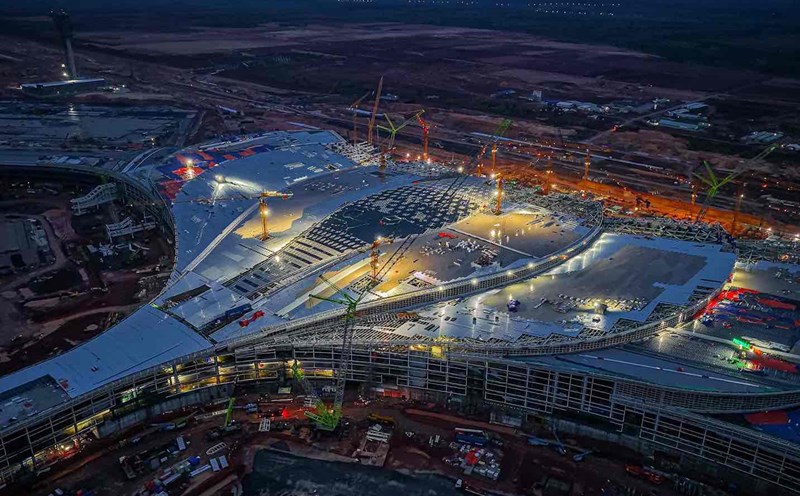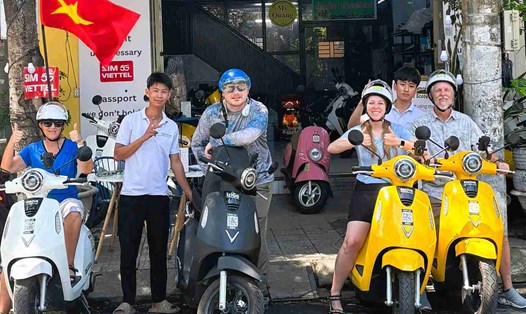Buses and taxis go ahead in the green roadmap
Implementing Directive 20/CT-TTg issued by the Prime Minister in July 2025 on preventing environmental pollution, Hanoi and Ho Chi Minh City are discussing a roadmap for greening traffic, including limiting gasoline motorbikes.
In Da Nang, according to the Green Energy Transition Plan issued by the Da Nang People's Committee, from 2025, all newly invested or replacement buses will use electricity and clean energy. By 2030, 100% of taxis will also have to operate on electricity. Further, the goal by 2050 is that all buses and taxis in Da Nang run on green energy.
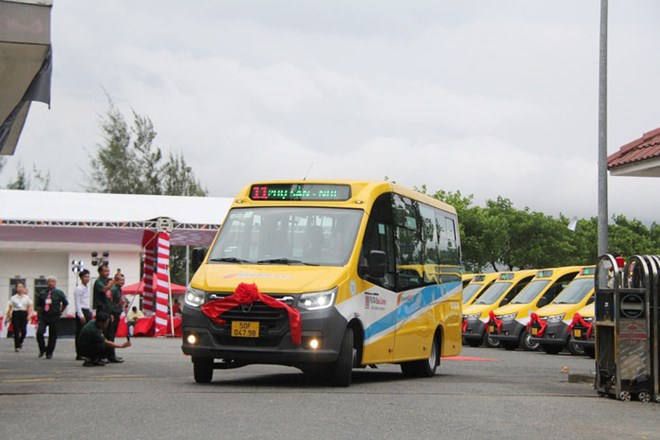
Currently, the city has not yet had a policy to force people to replace gasoline motorbikes with electric vehicles. In the immediate future, Da Nang focuses on converting public transport, including buses and taxis, to create a spillover effect to the community - the Department of Construction of Da Nang City replied to Lao Dong newspaper.
According to the Department of Construction, the important goal is to reduce emissions, improve air quality and protect people's health. Therefore, the conversion is being carried out step by step, without disrupting people's lives.
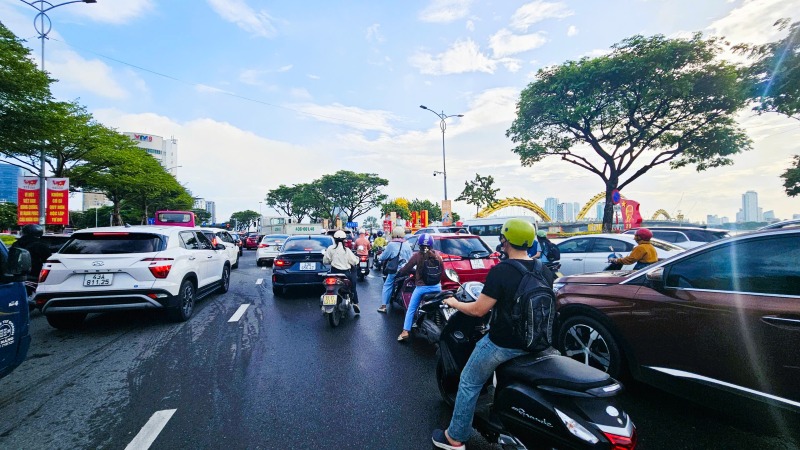
The city has been calling on businesses to invest in charging station infrastructure, while building incentive policies to gradually help people access green vehicles. To date, electric taxis account for about 60% of the total number of taxis operating in Da Nang. The City People's Committee has also agreed on the policy of replacing all subsidized buses from diesel to electric vehicles, expected to be deployed in 2025.
Government encourages
The policy of replacing vehicles using fossil fuels with clean energy has received widespread consensus, especially when environmental and health benefits are clearly seen. However, the complete replacement of gasoline motorbikes is still controversial.
Many workers are concerned about the financial burden. Ms. Nguyen Thi Thanh, a garment worker in Hoa Khanh Industrial Park, shared: My family has 2 gasoline motorbikes that have been used for nearly 10 years and are still running well. If we were forced to switch to electric vehicles, it would be too much for us.
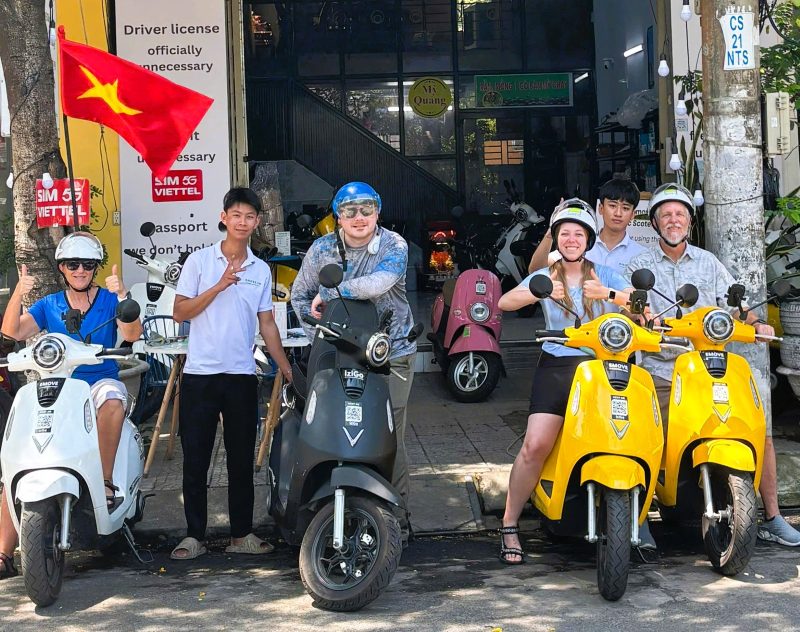
In addition to costs, weather conditions are also an obstacle. In Da Nang, heavy rain and flooding often occur, raising concerns about the durability of electric vehicles. Some technology motorbike taxi drivers said that when the vehicle is flooded, the repair cost of electric vehicles is often higher than that of gasoline vehicles, putting more pressure on users.
According to Prof. Dr. Hoang Xuan Co - Head of the Science Department, Vietnam Environmental Economics Association, if the policy of greening traffic is seriously implemented, it will bring clear results. However, the plan must clearly state which agency will implement it, how to implement it, and with which resources. If they do not do well, people will react strongly.
Also discussing solutions to support people to change vehicles, Associate Professor, Dr. Vu Thanh Ca - Senior Lecturer of the Faculty of Environment, Hanoi University of Natural Resources and Environment - said that there needs to be a suitable roadmap for people to change, avoiding wasting resources. For low-income groups, there needs to be financial support from the state through support and loans.
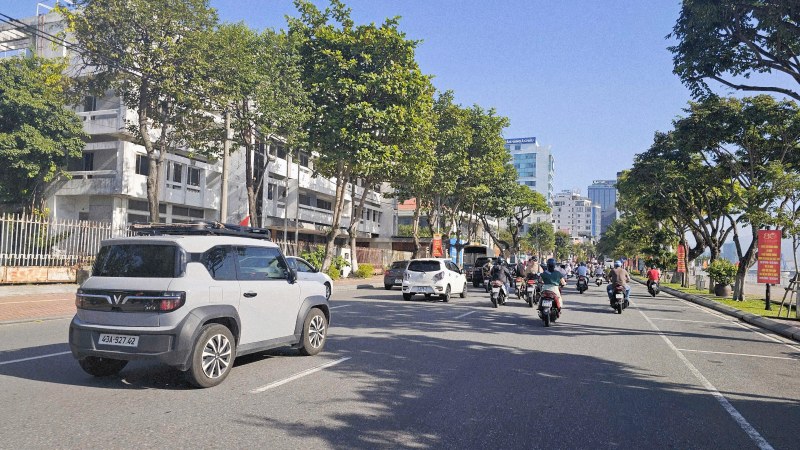
Currently, air quality in Da Nang urban area is still meeting national standards, but many areas near industrial parks are being affected by fine dust and emissions. The main sources of emissions come from transportation, industry and construction.
Up to now, Da Nang has confirmed that it is not mandatory for people to replace gasoline motorbikes with electric vehicles. The city chose to start from buses and taxis - public transport with strong influence - to gradually create changes in awareness and action, towards a green, clean and sustainable city.

